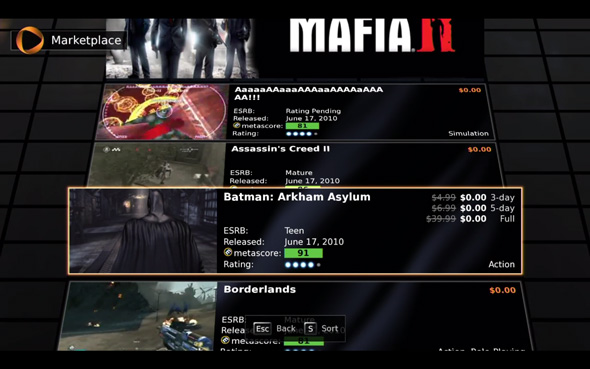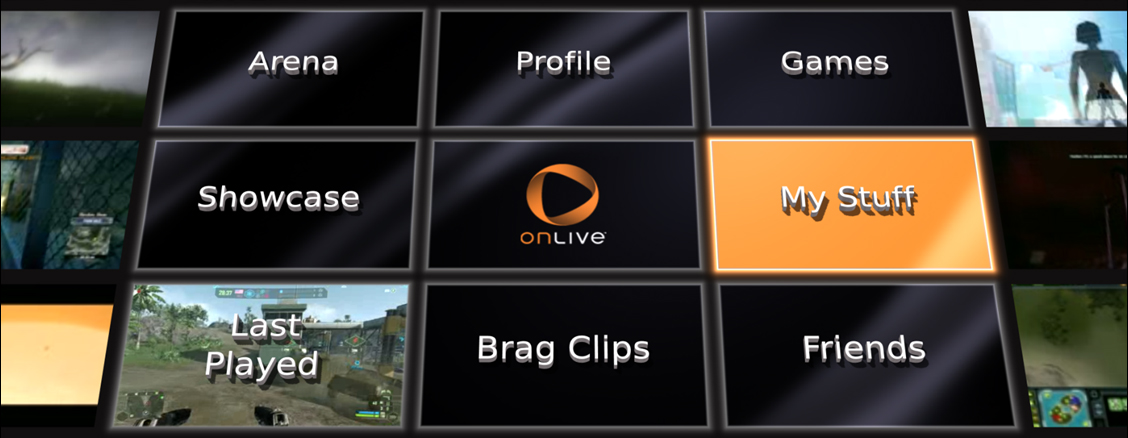Face off: Is there a future for game streaming services?


Tyler Wilde, executive editor
Tyler thinks streaming is inevitable, and that paint won't exist in the future for some reason.
Christopher Livingston, staff writer
Chris thinks streaming will never work and he'll never own a holographic dog.
In Face Off, PC Gamer writers go head to head over an issue affecting PC gaming. Today, in light of OnLive’s approaching demise, Tyler and Chris argue about whether game streaming services have a future in PC gaming.
Tyler: YES. I’m not saying it’s a good thing, but in 20 years we'll all have fiber optic connections and the bulk of our computing will be done elsewhere. We won't own any of our software (and barely own any now). Most single player games will be episodic, delivered through a subscription service like Netflix. That service will probably be Steam. I know this, because my dad is the inventor of the time machine and he told me.
Chris: NO. The size and complexity of games will always stay ahead of the ability to stream them well. It’s great to imagine everything being miraculously better in the future: people have been doing that for centuries despite always being wrong, as evidenced by my lack of a hologram dog (no poops!) and a house on the moon. I’m sure internet connections will be better, but games will be bigger and more demanding as well, so the tubes will always be slow and clogged. The internet will always be just a bit too slow for what we need, and PC gamers don’t like slow things. They hate turtles, for instance. Hate them.
Tyler: My dad told me, Chris, so I don’t know how you’re gonna argue with that. But, OK, for the sake of argument, let’s assume that future internet connections are so crazy fast that remote computing is virtually latency-free. I’m talking quantum entanglement. If that happens, we’ll end up with cheap, bare-bones systems that do the bulk of their processing in remote supercomputers. Our terminals will rarely need to be upgraded, because all the processing will be happening somewhere else. They’ll be windows into subscription-funded mega-servers, where we’ll all co-exist in oppressive harmony. There will still be enthusiasts who build their own PCs, but they will be outliers. The idea of storing data locally is already going away—look at Chromebooks—and the idea of processing locally will too.

Chris: My Chromebook stinks, for the record, and I don’t trust the cloud any further than I can throw it, which isn't far because it’s weighed down by NSA agents. And it’s not just enthusiasts who like owning hardware: your dad may have invented a time machine but my dad bought one from him, and calls me every other day to ask me how to get the light to stop blinking. People like buying hardware even if they don’t build it themselves or know how it works. Speaking of buying things, we may not own most of the games we play now, technically, but they’re still here, installed on our home computers, and that’s how we like them. Haven’t you ever rage-deleted a game? It’s satisfying, way more satisfying than rage-turning-off-a-remote-stream. And what if I want to mod a game? Okay, let’s be realistic, what if someone with actual talent and know-how wants to mod a game?
Tyler: Maybe I’m looking too far ahead. I've tried streaming, and no, it’s currently not a good experience. And like you say, we want our games installed locally. We want to mess with their configurations and mod them. We don’t want any latency or loss in image quality. But if these services get just a little better (along with our broadband infrastructure, which is getting better), and if they can work reliably and the latency isn't noticeable enough to make single-player games hard to play, I bet there’s a more casual market out there that’ll eat it up. It’ll just take the right combination of hardware product and service. Imagine a subscription where you can play Batman: Arkham Knight, or any other big game on Steam, on a $150 netbook. You could sell that.
Chris: That’s a tempting vision of the future, and more uses of the word ‘if’ than a Rudyard Kipling convention. Plus, if there’s one thing PC gamers hate more than turtles it’s sitting down to play a single-player game and finding they can’t because some game server a hundred miles away isn't working. You’re right, I’m sure there will be a casual market for a streaming service, but there’s a casual market for gaming now and it hasn't stopped people from dropping thousands of dollars on virtual spaceships for a game that hasn't even come out yet. People like spending money, and if you have money for games and money for an awesome internet connection, it’s likely that you have money for a half-decent PC.
Keep up to date with the most important stories and the best deals, as picked by the PC Gamer team.

Tyler: For now, sure. But if I’m being iffy it’s because we’re talking about the future! Come to my imagination zone, Chris, and imagine some of the benefits of game streaming. Imagine a future where developers can make games as graphically intensive as they want, and never worry about the specs of the PCs playing them. They get to go all out, and so many more people get to play their games. If there were a service good enough to make that possible, I think it would be a tempting offer for publishers. Valve has already created pretty good in-home streaming, so is it a crazy leap to think that in the future we might have the option to play locally or stream from a remote server?
Chris: I guess my imagination zone is a little different, because in it (next to my hologram dog) I see a small, powerful, inexpensive computer in my home (moon home) rather than a large expensive one in some corporation's megaheadquarters when I can’t see it or touch it or spray compressed air into it in the vain hope it will help it to stop making that noise what is that? Actually, I do see the benefit of leaving the computing to someone else, and as long as it doesn't try to replace traditional way to play games, and is just an alternative, that’s fine. I doubt Big Graphics Card will allow personal hardware to go out of style anyway.
Tyler: We went to buying physical movies, to downloading movies, to streaming movies in a pretty short amount of time. It’s tougher with games, because they’re interactive and all, but I can definitely see a future for it. I may not like it, but it’ll happen. And when the cloud owns all of our data and becomes a sentient cyberbeing, it won’t want to hang out with you, Chris. Oh, the fun we’re going to have, me and the great Googlactus. You’ll see.
Chris: The time machine you mentioned, is it really just a closet filled with paint fumes?
Tyler: Chris, paint doesn’t even exist in the year 3000.
Chris: You really need to start leaving the door open.

Chris started playing PC games in the 1980s, started writing about them in the early 2000s, and (finally) started getting paid to write about them in the late 2000s. Following a few years as a regular freelancer, PC Gamer hired him in 2014, probably so he'd stop emailing them asking for more work. Chris has a love-hate relationship with survival games and an unhealthy fascination with the inner lives of NPCs. He's also a fan of offbeat simulation games, mods, and ignoring storylines in RPGs so he can make up his own.

